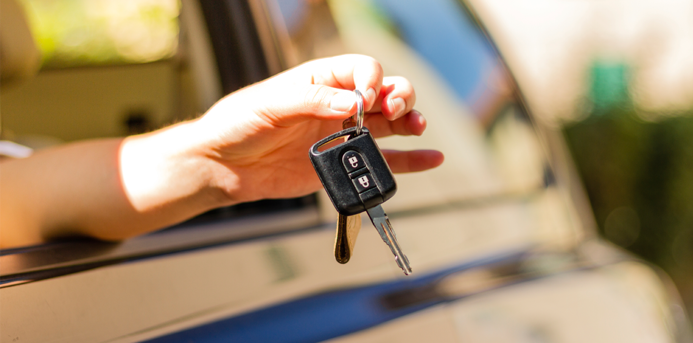Is donating your car the best idea?
Do good by donating your old car to charity. That’s what the charities tell you. But the reality is that you might do better selling your car to a used car dealer or to a junkyard and donating that money to charity.
Here are the pros and cons of donating your clunker:
Pro:
You will do good if you donate a vehicle in good condition to a legitimate, top-rated charity, for the charity to use by its staff or give to a needy client.
Con:
Do not be persuaded by highly-advertised car donation groups, including those whose advertising jingles get stuck in your head, such as 1-877-KARS4KIDS. That one all over the radio stations I listen to. They keep as much as 90 percent of the value of the vehicle, for the trouble of processing your donation for sale at an auction or to a junkyard, and to pay for all those ads.
Do Your Homework
Always check a charity’s rating before you donate anything, especially something as valuable as a vehicle, RV, motorcycle or real estate.
My go-to charity checker is Charity Navigator, which tells you whether the charity is approved by the IRS as a 501(c)(3) nonprofit with tax-exempt status. More, you’ll also find out how much of donation money used for advertising and staff salaries, and how much actually goes to charitable programs. It can be an eye-opener, for sure.
Just so you know, Kars4Kids gets just one star out of five rating from Charity Navigator, in part for using nearly half its income – 48 percent – for fundraising.
Other charity rating groups include Charity Watch and Give, the rating site linked to the Better Business Bureau. Since some religious charities are not listed on the charity monitoring sites, you can check their status on the IRS exempt organizations site.
More to Consider:
Pro: Bypass the middleman. Donate your vehicle directly to a charity of your choice, such as Salvation Army, Volunteers for America, or Wounded Warrior Project. Drive your old car to the charity office to hand over the keys and title, to save the charity the cost of picking it up, which reduces the value of your donation. Also, you’ll be able to hand over the vehicle and do the paperwork in one trip.
Con: Beware of charity names that sound like, but may not be who you think they are. Wounded Warriors Family Support is not the same as Wounded Warrior Project.
Pro: You’ll get a tax deduction. Before you do anything more than think about donating your vehicle, check the IRS Publication 4303 to see if it’s worth the time and effort it will take.
Con: Your vehicle is probably not worth as much to a charity as you thought. That’s because when the charity gives or sells your donation, it is below the “fair market value” you would get from a used car dealer as a trade-in, or from a direct sale. Instead, you can claim only what the charity says the vehicle is worth. If it’s a true junker, and the charity sells it for parts to a salvage yard, your tax deduction could evaporate.
Either way, it could take weeks, if not months, for the paperwork to be finished. That means you need to make your decision by Thanksgiving if you hope to get a tax deduction for that calendar year.
Plus, you’ll have to itemize your tax return, even if that’s your only charitable donation of the year, which may cost you more in additional tax preparation costs than if you donated cash instead of your vehicle and took a standard deduction.
Perhaps more importantly, the donation is a deduction from your income, so it depends on your tax bracket. The higher your tax bracket, the more the donation is worth, so discuss it first with your accountant or tax advisor.
The Bottom Line
If you still decide to donate your vehicle to charity, here’s what you need to know to get the maximum deduction:
You need to determine the “fair market value” of the exact make and model, with similar options and mileage. A vehicle with 100,000 miles has a higher value than that same model with 200,000 on the odometer.
Be sure to transfer the title to the charity, just as you would if you sold the vehicle instead of donated it. Otherwise, you remain responsible for registration and licensing fees, even parking tickets.
Be sure to get a receipt, or IRS Form 1098-C, to prove your donation. If the vehicle is sold at auction, salvaged or junked, be sure to get that receipt, too.
Make sure to alert your insurance company to cancel your coverage, so you are not responsible in the event of an accident or injury with your donated vehicle.
And, finally, keep all the paperwork. According to Charity Navigator, non-cash donations such as vehicle donations trigger the most IRS audits, so be sure you keep all the paperwork.
Written by Evelyn Kanter for SheBuysCars.com.

